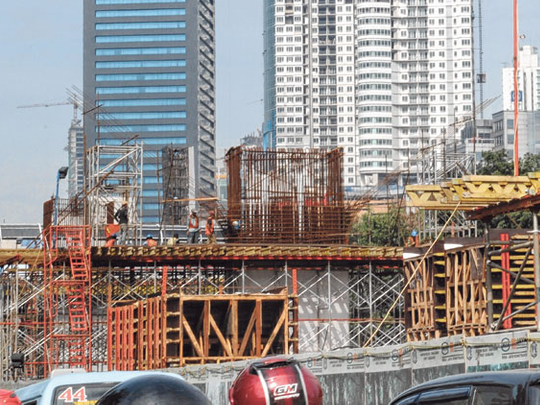
Dubai: The World Bank has cut global economic growth for 2012 and 2013 in its half-yearly report titled ‘Global Economic Prospects: Uncertainties and Vulnerabilities', and warned of "dangerous" times ahead.
The Bretton Woods institution lowered its growth forecast for 2012 to 2.5 per cent and 3.1 per cent for 2013. This is lower than the 3.6 per cent it projected in June for both years.
"Some of the financial turmoil in Europe has spread to developing and other high-income countries, which until earlier had been unaffected," the report said.
"This contagion has pushed up borrowing costs in many parts of the world and pushed down stock markets, while capital flows to developing countries have fallen sharply."
The report is often considered a ‘health-check' of the global economy.
The bank also lowered its growth forecast for 2012 to 5.4 per cent for developing countries and 1.4 per cent for high-income countries (minus 0.3 per cent for the Euro-area), down from its June estimates of 6.2 and 2.7 per cent (1.8 per cent for the Euro-area), respectively.
Pre-emptive measures
"Developing countries need to evaluate their vulnerabilities and prepare for further shocks, while there is still time," said Justin Yifu Lin, the World Bank's chief economist and senior vice-president for Development Economics.
Already, developing country sovereign spreads have increased 45 basis points on average and gross capital flows to developing countries plunged to $170 billion (Dh624.4 billion) in the second half of 2011, from $309 billion in 2010.
"Global growth is slowing down because of significant challenges to the world economy, including fiscal difficulties in developed economies and volatility in the euro area. The severity of the slowdown will depend on the path of the euro area crisis," Dr Giyas Gokkent, chief economist of National Bank of Abu Dhabi, told Gulf News.
Developing countries have less fiscal and monetary space for remedial measures than they did in 2008-09. As a result, their ability to respond may be constrained if international finance dries up and global conditions deteriorate sharply.
Prioritise safety nets
To prepare for that possibility, Hans Timmer, director of Development Prospects at the World Bank, said: "Developing countries should pre-finance budget deficits, prioritise spending on social safety nets and infrastructure, and stress-test domestic banks." Reflecting the growth slowdown, world trade, which expanded by an estimated 6.6 per cent in 2011, will grow only 4.7 per cent in 2012, before strengthening to 6.8 per cent in 2013.
"Europe appears to have entered recession. At the same time, growth in several major developing countries (Brazil, India and, to a lesser extent, Russia, South Africa and Turkey) is significantly slower than it was earlier in the recovery, mainly reflecting policy tightening initiated in late 2010 and early 2011 in order to combat rising inflationary pressures," the World Bank said.
India
Cooling impact
India, like the other emerging market countries of Asia, is confronted with global economic cooling at the start of 2012.
India's growth is forecast at less than 7 per cent in 2012. Following the unprecedented depreciation of the currency, the rupee is clearly undervalued and offers long-term investors attractive investment opportunities.
Philipp Baertschi, chief strategist at Bank Sarasin & Co Ltd, Switzerland, said: "High interest rates and difficult conditions abroad mean that India probably faces a difficult first half in 2012, like other Asian emerging markets. Given the historically attractive valuation of the Indian equity market we are optimistic about its prospects in the 2012 investment year and expect it to produce a return of 20-30 per cent."
— S.R.












